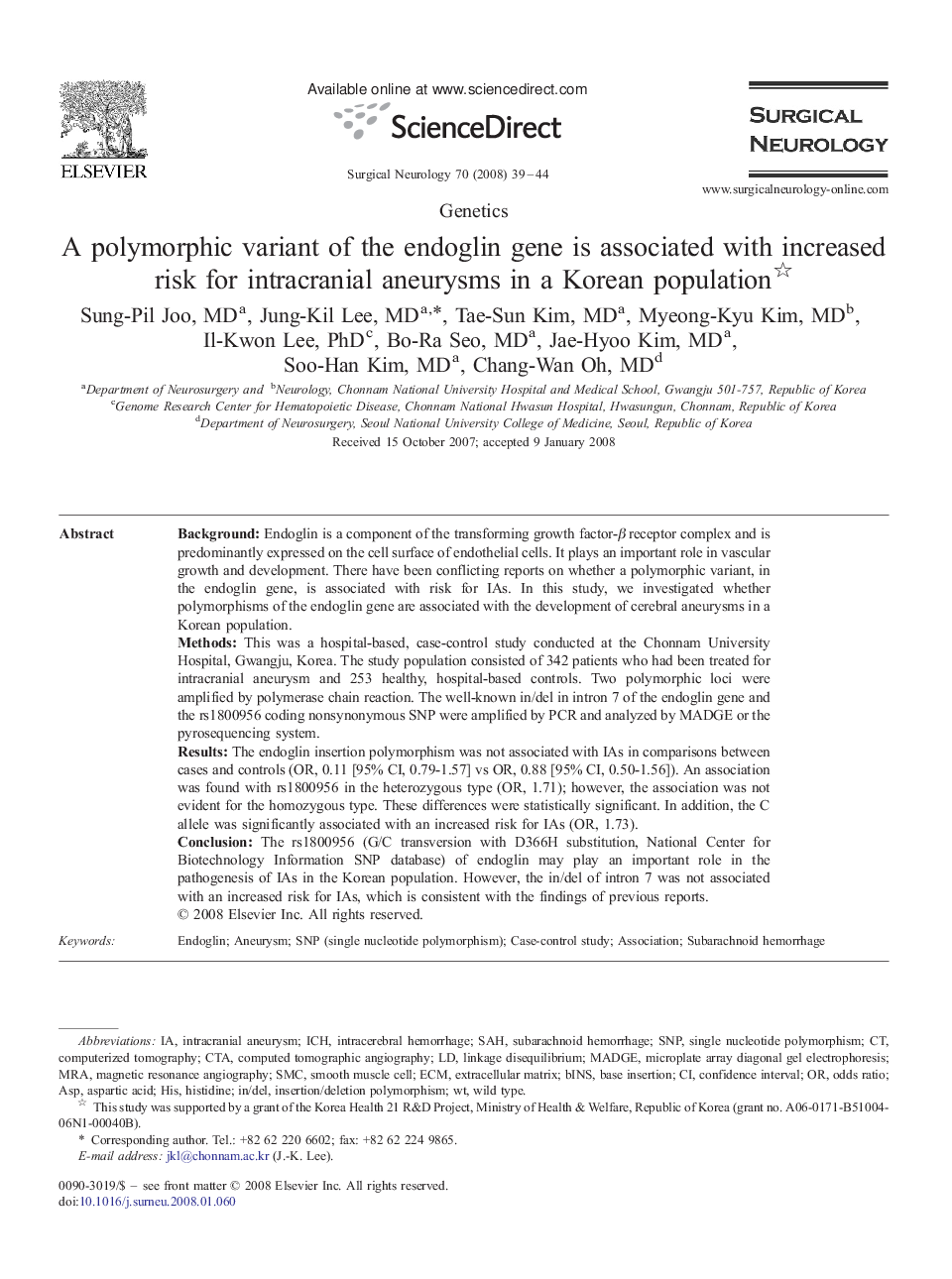| Article ID | Journal | Published Year | Pages | File Type |
|---|---|---|---|---|
| 3092811 | Surgical Neurology | 2008 | 6 Pages |
BackgroundEndoglin is a component of the transforming growth factor-β receptor complex and is predominantly expressed on the cell surface of endothelial cells. It plays an important role in vascular growth and development. There have been conflicting reports on whether a polymorphic variant, in the endoglin gene, is associated with risk for IAs. In this study, we investigated whether polymorphisms of the endoglin gene are associated with the development of cerebral aneurysms in a Korean population.MethodsThis was a hospital-based, case-control study conducted at the Chonnam University Hospital, Gwangju, Korea. The study population consisted of 342 patients who had been treated for intracranial aneurysm and 253 healthy, hospital-based controls. Two polymorphic loci were amplified by polymerase chain reaction. The well-known in/del in intron 7 of the endoglin gene and the rs1800956 coding nonsynonymous SNP were amplified by PCR and analyzed by MADGE or the pyrosequencing system.ResultsThe endoglin insertion polymorphism was not associated with IAs in comparisons between cases and controls (OR, 0.11 [95% CI, 0.79-1.57] vs OR, 0.88 [95% CI, 0.50-1.56]). An association was found with rs1800956 in the heterozygous type (OR, 1.71); however, the association was not evident for the homozygous type. These differences were statistically significant. In addition, the C allele was significantly associated with an increased risk for IAs (OR, 1.73).ConclusionThe rs1800956 (G/C transversion with D366H substitution, National Center for Biotechnology Information SNP database) of endoglin may play an important role in the pathogenesis of IAs in the Korean population. However, the in/del of intron 7 was not associated with an increased risk for IAs, which is consistent with the findings of previous reports.
